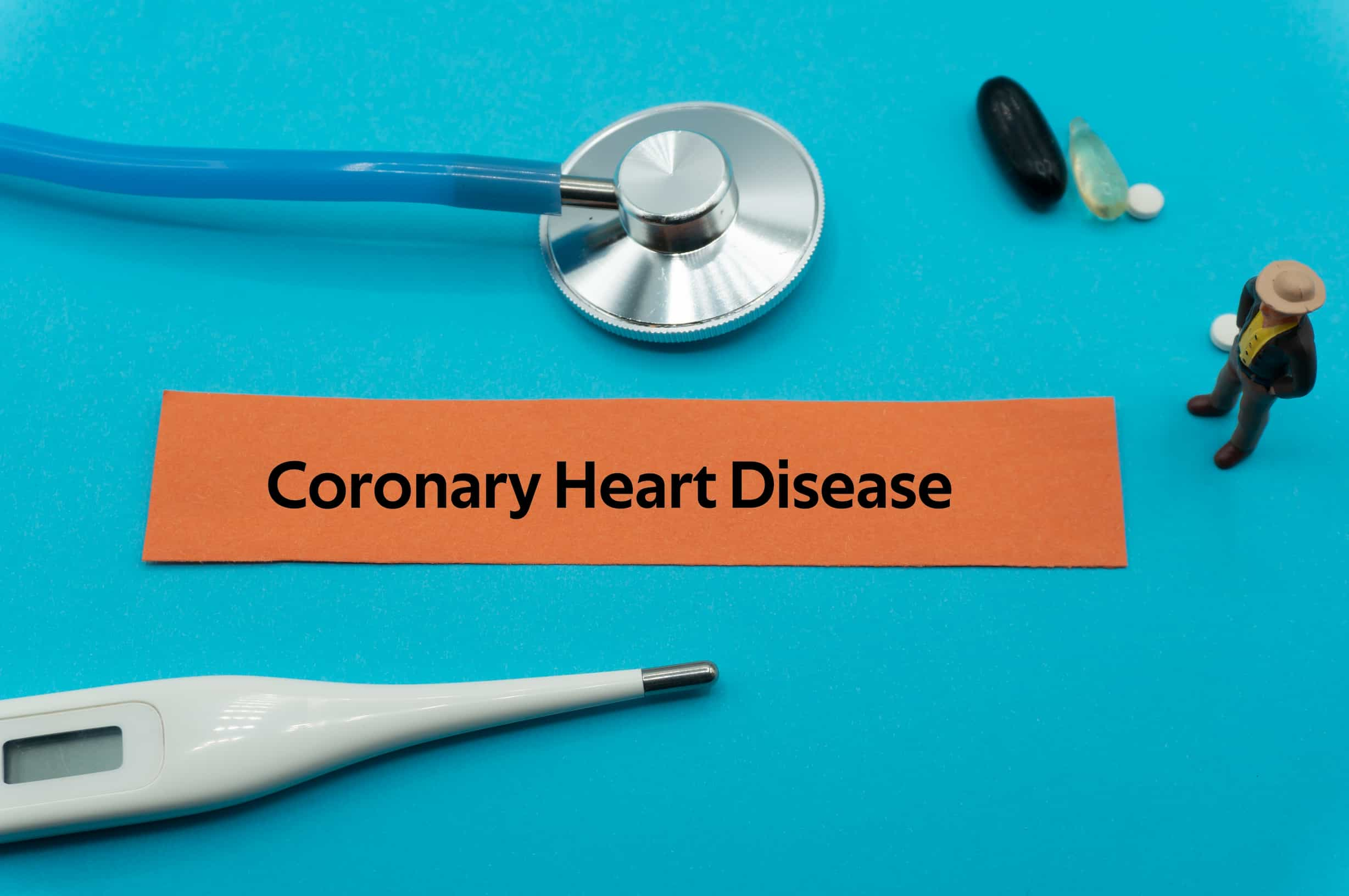Coronary Heart Disease Treatment in Turkey
Healthy Türkiye helps you find the best coronary heart disease treatment in Turkey at affordable prices and adopts a 360-degree service approach in all areas of health through affiliated hospitals.
- Medical Treatment
- Cardiology Treatment in Turkey
- Carotid Artery Stenting in Turkey
- Cerebrovascular Disease Treatment in Turkey
- Colour-Duplex Sonography in Turkey
- Pericarditis Treatment in Turkey
- Peripheral Artery Disease Treatment in Turkey
- Coronary Heart Disease Treatment in Turkey
- EECP Treatment in Turkey
- Congenital Heart Treatment in Turkey
- Electrophysiology Study in Turkey
- Nuclear Cardiology Test in Turkey
- Pediatric Cardiology Treatment in Turkey
- Rheumatic Heart Disease Treatment in Turkey
- Spiro-Ergometry in Turkey
- Homepage
- Medical Treatment
- Coronary Heart Disease Treatment in Turkey

About Coronary Heart Disease Treatment in Turkey
Coronary artery disease treatment in Turkey is focused on a condition that affects the arteries that provide blood to your heart. Plaque buildup narrows or clogs one or more of your coronary arteries in CAD. The most common symptom is chest pain (angina). A heart attack or other consequences, such as arrhythmia or heart failure, can result from CAD.
Coronary artery disease (CAD) is defined as a narrowing or blockage of your coronary arteries caused by plaque formation. The coronary arteries deliver oxygen-rich blood to the heart. Plaque accumulation in these arteries reduces the amount of blood that can reach your heart.
Our heart regulates our body’s blood needs by continuously pumping blood. It is critical that the veins leading to and from the heart are apparent in this face. Heart disease treatment approaches can be broadly classified as lifestyle changes, drug applications, stent applications, and bypass surgery. The doctor and the patient decide on the best treatment option based on the clinical status of the cardiovascular disease.
Turkey is a country that patients from all over the world select for health tourism because of its geopolitical location and ease of transportation. There are hundreds of successful hair transplantations, aesthetic operations, and cancer treatments in Turkey. These hospitals and clinics provide services at lower costs than in other countries throughout the world. Patients who come to the summer resorts make an appointment with the health institutions and schedule both their vacation and their treatments with expert doctors. In Turkey, the most popular cities for health tourism are Istanbul, Izmir, and Antalya. However, getting quality care in other cities is quite possible.

Coronary Heart Disease Treatment Procedure in Turkey
Coronary heart disease treatment in Turkey deals with when the arteries that carry oxygen-rich blood to your heart muscle become constricted due to the buildup of fatty plaque (atheroma). This can limit blood flow and cause angina symptoms.
When a piece of plaque breaks off, a blood clot forms around it, cutting off blood supply to a portion of your heart muscle. CHD is a progressive illness, and there is currently no method to reverse plaque formation; however, drugs and lifestyle changes can slow the process, and treatment can manage symptoms. If your plaque buildup is extensive or causing symptoms, or if you’ve already had a heart attack, you may be recommended for angioplasty and stent placement or coronary artery bypass grafting (CABG).
Electrocardiogram (ECG or EKG): The electrical activity of the heart is measured with this quick and painless examination. It might indicate how quickly or slowly the heart beats. Your provider can examine signal patterns to see if you’re having or have had a heart attack.
Echocardiogram: This test uses sound waves to generate images of the beating heart. Echocardiography can demonstrate how blood flows through the heart and its valves. A shortage of oxygen or a heart attack can cause parts of the heart to move slowly. This could be an indication of coronary artery disease or another problem.
Stress test with exercise: If your symptoms are worse when you exercise, your provider may ask you to walk on a treadmill or ride a stationary bike during your ECG. Stress echocardiography is a test that is performed while performing these exercises. If you are unable to exercise, you may be given drugs that stimulate the heart in the same way that exercise does.
Nuclear stress examination: This test is comparable to an exercise stress test, however, it includes visuals in addition to ECG recordings. A nuclear stress test demonstrates how blood flows to the heart muscle both at rest and under stress. IV administers a radioactive tracer. The tracer improves the visibility of the cardiac arteries in pictures.
CT scan of the heart (cardiac): A CT scan of the heart might reveal calcium deposits and artery blockages. Calcium deposits can cause artery narrowing. During this examination, the dye may be administered by IV. The dye aids in the creation of detailed images of the cardiac arteries. The examination is known as a CT coronary angiography if the dye is utilized.
Angiogram and cardiac catheterization: A cardiologist gently inserts a flexible tube (catheter) into a blood vessel, usually in the wrist or groin, during cardiac catheterization. The catheter is directed carefully to the heart. It is guided by X-rays. Dye is pumped through the catheter. The dye enhances the visibility of blood vessels in the photographs and highlights any obstructions. If an artery blockage needs to be treated, a balloon on the catheter’s tip can be inflated to open the artery. To maintain the artery open, a mesh tube (stent) is commonly employed.

We Care About Your Health
Healthy Türkiye provides the best for your health and comfort. You will feel privileged with us.
7/24 Quality Personal Assistance Throughout Your Journey
Customizable for You All-Inclusive Packages
Get the Right Advice for your Health
How Is Coronary Heart Disease Treatment Performed in Turkey?
Coronary heart disease treatment in Turkey is applied when plaque accumulates inside the coronary arteries, narrowing them and decreasing blood flow to the heart. Hardened, built-up plaque can break apart and cause blood clots, which can potentially delay or obstruct blood flow. Coronary artery disease treatment in Turkey is to cure chest pain, shortness of breath, and/or an irregular heartbeat, which can eventually lead to a heart attack.
Symptoms of coronary artery disease should be evaluated by a doctor as soon as possible. He or she will go over therapy alternatives that may be able to reverse the disease, prevent further plaque buildup, or reduce the patient’s chance of developing cardiac problems. Whether the condition is in its early stages or has progressed, critical lifestyle adjustments such as eating a heart-healthy diet, decreasing stress, losing weight, exercising, and quitting smoking may improve symptoms and the long-term outlook.
Angioplasty, stent replacement, coronary artery bypass graft surgery (CABG), or off-pump coronary artery bypass surgery may all be used to treat coronary artery disease. Coronary artery disease is sometimes caused by an irregularity in the coronary artery, such as how it is formed or branches. This is known as an aberrant coronary artery, and it can cause major cardiac problems and possibly sudden death if not treated. Treatment is known as anomalous coronary artery intervention, and it typically consists of angioplasty and stent implantation to open up the blocked portion of the artery.
Types of Coronary Heart Disease Treatment in Turkey
The most frequent type of cardiac disease in the United States is coronary heart disease. However, most individuals are only aware of one variety. Coronary artery disease treatment in Turkey steps in when the blood channels that feed blood to your heart, known as coronary arteries, narrow. This narrowing can occur for a variety of reasons, each of which is classified as a different form of CAD. Our cardiologists and heart surgeons in the best hospitals affiliated with Healthy Türkiye provide cutting-edge therapy for heart diseases.
Pharmaceutical Therapy: When atherosclerosis is discovered early on, treatments like nitrates, beta-blockers, calcium channel blockers, aspirin, or cholesterol-lowering pharmaceuticals (statins) may be recommended. These medications may decrease the progression of the disease or alleviate its symptoms.
Bypass Surgery: A frequent heart procedure is coronary artery bypass grafting, or “CABG.” A healthy blood vessel from your leg, chest, or arm is removed by a surgeon. The vessel is then joined (grafted) to your coronary artery just past the obstruction. This generates a new conduit for blood to flow around (bypass) the arterial blockage and to your heart. Patients undergoing bypass surgery are sedated and are not awake during the procedure. There are two types of bypass surgery for coronary artery disease; beating heart surgery and, paused heart surgery.
Beating Heart Surgery: Also known as off-pump surgery, is performed while the heart is still beating. This frequently necessitates the use of specialized equipment that allows the surgeon to operate on the heart while it is in motion. Certain people may benefit from beating heart surgery.
Arrested Heart Surgery: The majority of CABG surgeries are performed through a chest incision while the heart is stopped and a heart-lung machine takes over the job of circulating blood. This is referred to as “halted heart surgery” or “traditional bypass surgery.”
Minimally Invasive Treatments: Minimally invasive coronary artery surgery is an alternative to CABG surgery for some patients. Coronary balloon angioplasty, stenting, and minimally invasive cardiac surgery (MICS) CABG are three minimally invasive treatments for coronary artery disease (CAD).
Coronary balloon angioplasty: also known as percutaneous (through the skin) coronary intervention (PCI), employs a small balloon to enlarge the interior channel of the artery and allow blood to flow at a normal or near-normal rate.
Stenting: It is a procedure that uses a stent to restore blood flow in the coronary artery. A stent is a small, inflatable mesh-like tube constructed of metal, such as stainless steel or a cobalt alloy. A stent attached to a tiny balloon is opened inside an artery, similar to an angioplasty treatment, to push back plaque and restore blood flow.
MICS CABG: The above-mentioned beating heart operation can be performed using a minor rib incision rather than a median sternotomy.
Stents and balloons are sometimes used simultaneously in coronary heart disease treatment in Turkey known as stent and balloon therapy. Treatment for coronary artery disease varies based on the type of CAD you have. Some people merely require dietary changes, while others require minimally invasive or surgical therapies. Your doctor can assist you in determining the best treatment strategy for you.
Recovery from Coronary Heart Disease Treatment in Turkey
The most frequent type of heart illness is coronary artery disease (CAD). Although it is the leading cause of mortality in the United States, there is much that can be done to avoid or treat it. The problem begins when a waxy material known as plaque accumulates inside the arteries that provide blood to the heart muscle. It can take decades for blood flow to be blocked, yet it can eventually lead to a heart attack or failure.
Recovery time from a heart attack (myocardial infarction) might range from two to three months. You’ll be able to return to work and your normal schedule once you’ve fully recovered. The length of your recovery is determined by a variety of factors, including:
The seriousness of your heart attack.
How swiftly you were treated.
The method of treatment (it takes longer to recover from open-heart surgery compared with a percutaneous coronary intervention).
Your overall health and any other medical issues.
Returning home after a heart attack might be frightening. You may have questions about what is usual as you heal, or you may be concerned about being separated from your medical care team. Your family and friends may be wondering how they can best help you.
Exercise is critical to your recuperation. Joining a cardiac rehabilitation program is the best way to get moving again after a heart attack. Cardiac rehab provides you with a tailored plan for safe movement in a medically supervised setting. It also assists you in making lifestyle modifications that will benefit your long-term health. These include eating a healthier diet, dealing with stress, and quitting smoking.
Exercise should continue to be a part of your daily routine even after you have completed cardiac rehab. If you didn’t exercise much before your heart attack, the notion of exercising consistently may be daunting. Cardiac rehabilitation can help you gradually incorporate more activity into your day. So, by the end of your training, you’ll be confident enough to continue on your own. Don’t be discouraged, and remember that many others are in your shoes. Over time, small actions add up to considerable growth.
Is CT Angiography and Coronary Angiography Same?
People can take the following medications to lower their risk or impact of CAD:
Beta-blockers: Beta-blockers may be prescribed by a doctor to lower blood pressure and heart rate, particularly in those who have already had a heart attack. This aids in “resting” the heart.
Nitroglycerin patches, sprays, or tablets: These relax the arteries, lowering the heart’s demand for blood while also relieving chest pain.
Angiotensin-converting enzyme inhibitors lower blood pressure and help to reduce or stop the course of CAD.
Calcium channel blockers: These expand the coronary arteries, increasing blood flow to the heart and lowering blood pressure.
Statins: According to some studies, while statins cannot reduce the overall risk of death from CAD, they can prevent the development of CAD and lower the risk of nonfatal heart attacks. Statins can also cause plaque stability, making it less likely to rupture.
Current recommendations People with a history of heart attack, stroke, angina, or other cardiovascular problems should take aspirin, according to Trusted Source. This is due to the fact that aspirin inhibits blood clots from developing on the plaque. The utility of aspirin in persons who have not suffered a heart attack is more debatable. However, if there is a significant burden of plaque and a low risk of bleeding, doctors frequently recommend aspirin. Doctors now advise patients to focus on lifestyle changes such as eating a nutritious diet and obtaining regular moderate to vigorous exercise. These strategies have the potential to lower the risk of atherosclerosis.

2026 Cost of Coronary Heart Disease Treatment in Turkey
All types of medical attention, like treatment for coronary heart disease, are very affordable in Turkey. Many factors are also included in determining the cost of coronary heart disease treatment in Turkey. Your process with Healthy Türkiye will last from the time you decide to have coronary heart disease treatment in Turkey until the time you are fully recovered, even if you are back home. The exact coronary heart disease treatment in Turkey depends on the type of operation involved.
The cost of coronary heart disease treatment in Turkey does not demonstrate many variations in 2026. Compared to costs in developed countries like the United States or the UK, coronary heart disease treatment costs in Turkey are relatively low. So, it’s no wonder patients from across the world visit Turkey for coronary heart disease treatment procedures. However, price is not the only factor affecting choices. We suggest looking for hospitals that are safe and have coronary heart disease treatment reviews on Google. When people decide to seek medical help for coronary heart disease treatment, they will not only have had low-cost procedures in Turkey, but also the safest and best treatment.
At clinics or hospitals contracted with Healthy Türkiye, patients will receive the best coronary heart disease treatment from specialist doctors in Turkey at affordable rates. Healthy Türkiye teams provide medical attention, coronary heart disease treatment procedures, and high-quality treatment to patients at a minimum cost. When you contact Healthy Türkiye assistants, you can get free information about the cost of coronary heart disease treatment in Turkey and what this cost covers.
Why Is Coronary Heart Disease Treatment Cheaper in Turkey?
One of the main considerations before traveling abroad for coronary heart disease treatment is the cost-effectiveness of the whole process. Many patients think that when they add flight tickets and hotel expenses to their coronary heart disease treatment costs, it will become very expensive to travel, which is not true. Contrary to popular belief, round-trip flight tickets to Turkey for coronary heart disease treatment can be booked very affordably. In this case, assuming you are staying in Turkey for your coronary heart disease treatment, your total travel expense of flight tickets and accommodation will only cost less than any other developed country, which is nothing compared to the amount that you are saving.
The question “why is coronary heart disease treatment cheaper in Turkey?” is so common between patients or people simply curious about getting their medical treatment in Turkey. When it comes to coronary heart disease treatment prices in Turkey, there are 3 factors allow cheaper prices:
The currency exchange is favorable for whoever looking for coronary heart disease treatment has a euro, dollar, or pound;
The lower cost of living and cheaper overall medical expenses, such as coronary heart disease treatment;
For coronary heart disease treatment, incentives are given by the Turkish government to medical clinics working with international clients;
All these factors allow for cheaper coronary heart disease treatment prices, but let’s be clear, these prices are cheaper for people with strong currencies (as we said, the euro, dollar, Canadian dollar, pound, etc.).
Every year, thousands of patients from all over the world come to Turkey to get treatment for coronary heart disease. The success of the healthcare system has increased in recent years, especially for the treatment of coronary heart disease. It’s easy to find well-educated and English-speaking medical professionals in Turkey for all kinds of medical treatment, such as treatment for coronary heart disease.

Why Choose Turkey for Coronary Heart Disease Treatment?
Turkey is a common choice among international patients seeking advanced coronary heart disease treatment. Turkey’s health procedures are safe and effective, with a high success rate, like the treatment of coronary heart disease. The increasing demand for high-quality coronary heart disease at affordable prices has made Turkey a popular medical travel destination. In Turkey, treatment for coronary heart disease is performed by highly experienced and trained doctors with the most advanced technology in the world. Coronary heart disease treatment is done in Istanbul, Ankara, Antalya, and other major cities. The reasons for choosing coronary heart disease treatment in Turkey are as follows:
High-quality hospitals: Joint Commission International (JCI) accredited hospitals have dedicated coronary heart disease treatment units that are specially designed for patients. International and national strict protocols provide effective and successful coronary heart disease treatment for patients in Turkey.
Qualified experts: The expert teams include nurses and specialist doctors, together to carry out coronary heart disease treatment according to the patient’s needs. All the included doctors are highly experienced in performing coronary heart disease treatment.
Affordable price: The cost of coronary heart disease treatment in Turkey is affordable compared to Europe, the USA, the UK, Singapore, Australia, etc.
The high success rate: Highly experienced specialists, the best available technology, and stringently followed safety guidelines for post-operative care of the patient, resulting in a high success rate for coronary heart disease treatment in Turkey.
Is Coronary Heart Disease Treatment Safe in Turkey?
Did you know Turkey is one of the most visited destinations for coronary heart disease treatment in the world? It is ranked as one of the most popular tourist destinations for coronary heart disease treatment. Over the years, it has also come to be a very popular medical tourism destination too with many tourists coming in for coronary heart disease treatment. There are so many reasons why Turkey stands out as a leading destination for coronary heart disease treatment. Because Turkey is both safe and easy to travel to, with a regional airport hub and flight connections to pretty much everywhere, it is preferred for coronary heart disease treatment.
The best hospitals in Turkey have experienced medical staff and specialists who have performed thousands of medical services, such as the treatment for coronary heart disease. All procedures and coordination related to coronary heart disease treatment are controlled by the Ministry of Health in accordance with the law. Over many years, the greatest progress in medicine has been observed in the field of coronary heart disease treatment. Turkey is known among foreign patients for its great opportunities in the area of coronary heart disease treatment.
To emphasize, besides the price itself, the key factors in selecting a destination for coronary heart disease treatment is certainly the standard of medical services, the hospital staff’s high expertise, hospitality, and the safety of the country.
All-Inclusive Packages for Coronary Heart Disease Treatment in Turkey
Healthy Türkiye offers all-inclusive packages for coronary heart disease treatment in Turkey at much lower prices. Extremely professional and experienced doctors and technicians carry out high-quality treatment for coronary heart disease. The cost of coronary heart disease treatment in European countries can be quite expensive, especially in the UK. Healthy Türkiye provides cheap all-inclusive packages for a long and short stay of coronary heart disease treatment in Turkey. Because of many factors, we can provide you with many opportunities for your coronary heart disease treatment in Turkey.
The price of coronary heart disease treatment differs from other countries due to medical fees, staff labor prices, exchange rates, and market competition. You can save much more in coronary heart disease treatment compared to other countries in Turkey. When you purchase a coronary heart disease treatment all-inclusive package with Healthy Türkiye our healthcare team will present hotels for you to choose from. In coronary heart disease treatment travel, the price of your stay will be included in the all-inclusive package cost.
In Turkey, when you purchase coronary heart disease treatment all-inclusive packages through Healthy Türkiye, you will always receive VIP transfers. These are provided by Healthy Türkiye, which is contracted with highly qualified hospitals for coronary heart disease treatment in Turkey. Healthy Türkiye teams will organize everything about coronary heart disease treatment for you and have you picked up from the airport and safely brought to your accommodation. Once settled in the hotel, you will be transferred to and from the clinic or hospital for coronary heart disease treatment. After your coronary heart disease treatment has been successfully completed, the transfer team will return you to the airport in time for your flight home. In Turkey, all packages of coronary heart disease treatment can be arranged upon request, which relaxes the minds of our patients. You can reach out Healthy Türkiye for everything you need to know about coronary heart disease treatment in Turkey.
The Best Hospitals in Turkey for Coronary Heart Disease Treatment
The best hospitals in Turkey for coronary heart disease treatment are Healthy Türkiye, Memorial Hospital, Acıbadem International Hospital, and Medicalpark Hospital. These hospitals attract patients from all over the world seeking coronary heart disease treatment due to their affordable prices and high success rates.
Best Doctors and Surgeons in Turkey for Coronary Heart Disease Treatment
The best doctors and surgeons in Turkey for coronary heart disease treatment are highly skilled professionals who offer specialized care and advanced procedures. With their expertise and state-of-the-art techniques, these specialists ensure that patients receive high-quality coronary heart disease treatment and achieve optimal health results.

Frequently Asked Questions
In general, heart disease treatment may include: Lifestyle Changes These are frequently the first measures taken in treating heart disease. Eating a heart-healthy diet reduced in sodium and fat, exercising regularly, stopping smoking, and reducing alcohol use are all examples of lifestyle improvements.
If your coronary arteries narrow owing to atheroma buildup, the blood flow to your heart will be cut off. Chest pains can occur when a coronary artery becomes partially occluded (angina). It can induce a heart attack if it becomes fully obstructed (myocardial infarction).
Coronary heart disease cannot be cured, but treatment can help manage symptoms and lower the risk of complications such as heart attacks. Treatment may include adjustments in lifestyle, such as frequent exercise and quitting smoking. medicines.
You may encounter a range of mental problems or behavioral disturbances. Depression and anxiety are particularly prevalent. These conditions not only have an emotional influence on you, but they can also have an effect on your heart disease symptoms.
